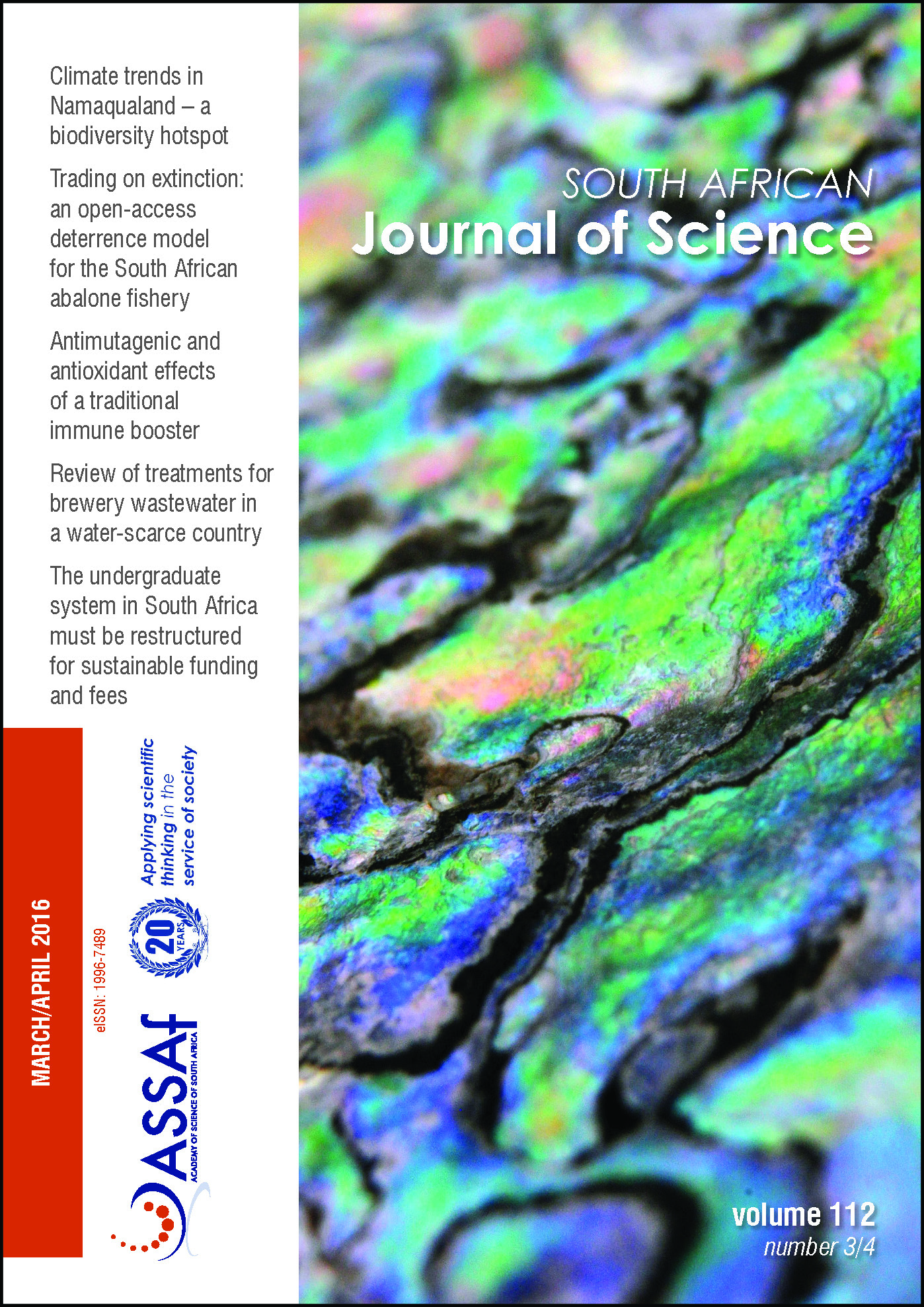The evolving landscape of plant breeders’ rights regarding wheat varieties in South Africa
DOI:
https://doi.org/10.17159/sajs.2016/20150164Keywords:
Plant variety, protection, breeding, varietal improvements, trendsAbstract
Addressing the multiple challenges facing global agriculture requires integrated innovation in areas such as seeds, biotechnology, crop protection, grain storage and transport. Innovations related to plant improvement and the development of new or improved plant varieties will only happen at an optimal level if plant breeders’ rights (PBR) are properly protected. The objective was to analyse the evolving landscape of wheat plant breeders’ rights to address the dearth of empirical evidence of the patterns and trends of wheat varietal improvements in South Africa. We compiled a detailed and novel count and attribute database of wheat varietal innovations in South Africa from 1979 to 2013 using various sources. This data set was then analysed to ascertain the main trends in, and ownership of PBRs for wheat varietal improvements in South Africa over this period. A total of 134 PBR wheat varietal innovations were lodged from 1979 to 2013, an average of 6 applications per year. The administrative delays in granting PBR applications were substantially reduced by 77 days during the post-deregulation period (after 1996), indicating increased efficiency. The main PBR applicants were Sensako (39%), the Agricultural Research Council Small Grains Institute (ARC-SGI) (25%) and Pannar (15%). The ARC-SGI contributed to some of the PBRs owned by private companies through shared genetic resources before Plant Variety Protection (PVP) was implemented. Future innovations and dissemination of wheat innovations can be stimulated by plant variety protection, together with broader variety sector legislation that encourages both public and private sector investment.
Published
Issue
Section
License

This work is licensed under a Creative Commons Attribution 4.0 International License.

All articles are published under a Creative Commons Attribution 4.0 International Licence
Copyright is retained by the authors. Readers are welcome to reproduce, share and adapt the content without permission provided the source is attributed.
Disclaimer: The publisher and editors accept no responsibility for statements made by the authors
How to Cite
- Abstract 606
- PDF 571
- EPUB 184
- XML 214












.png)